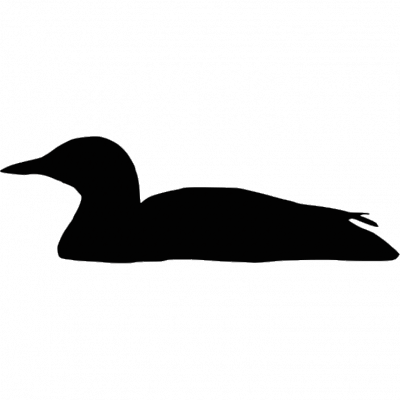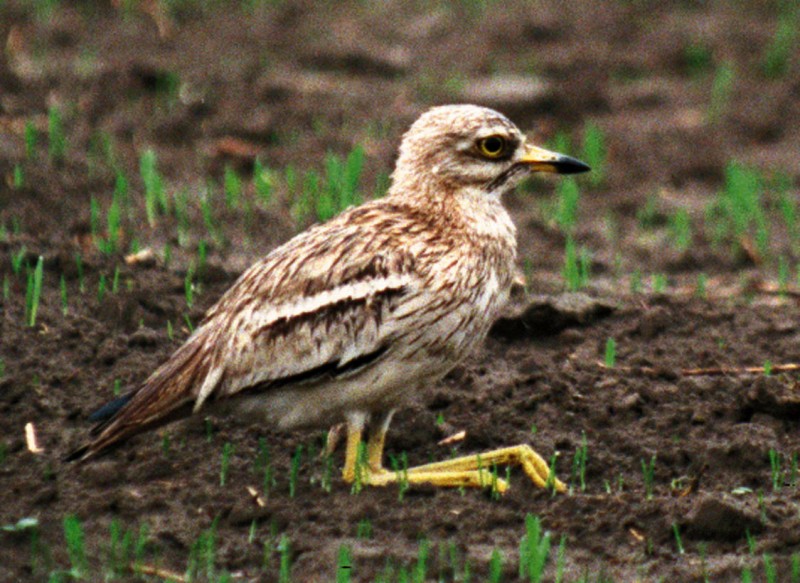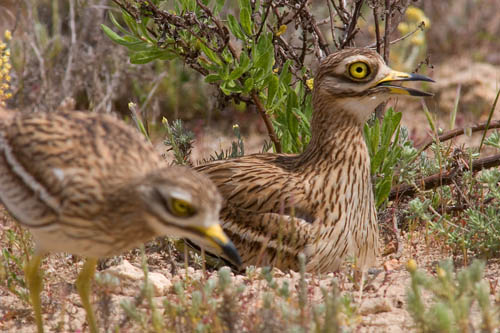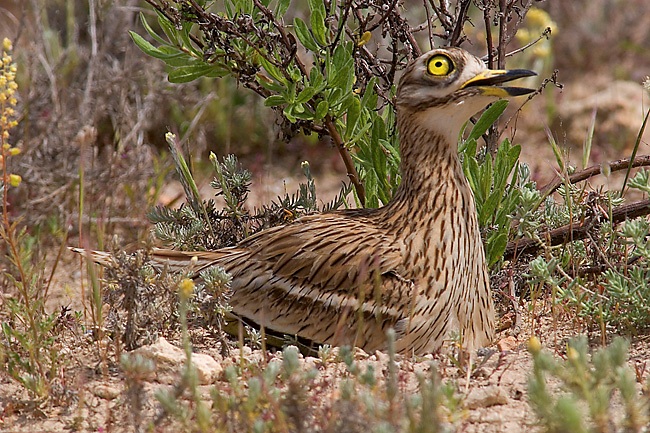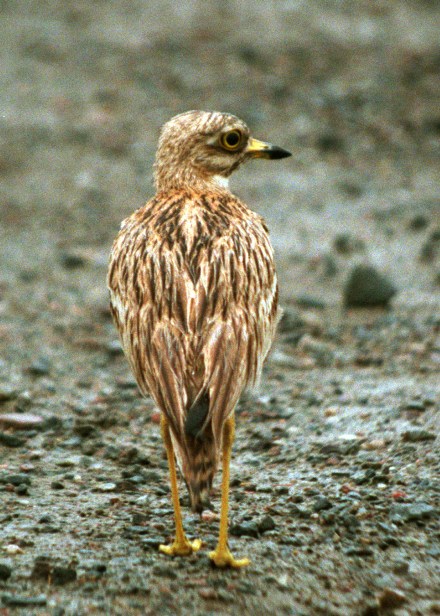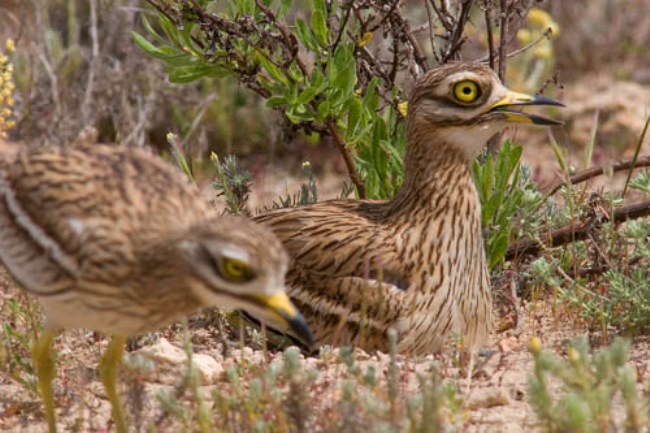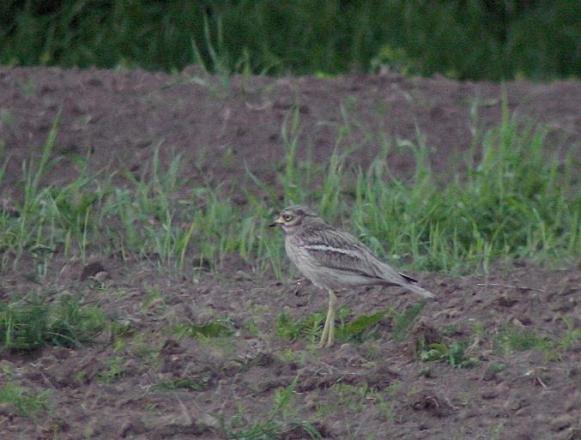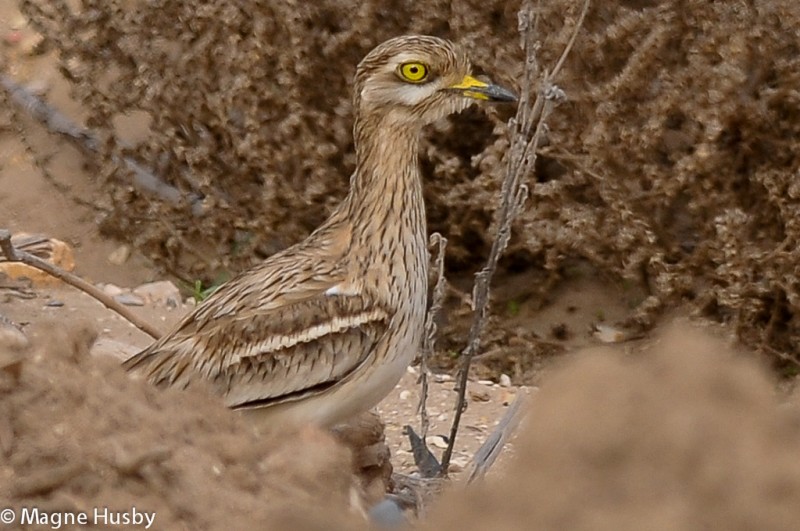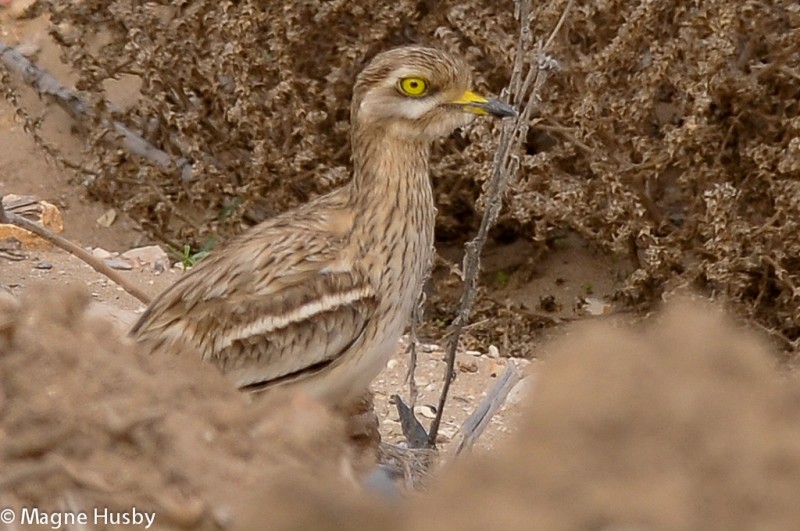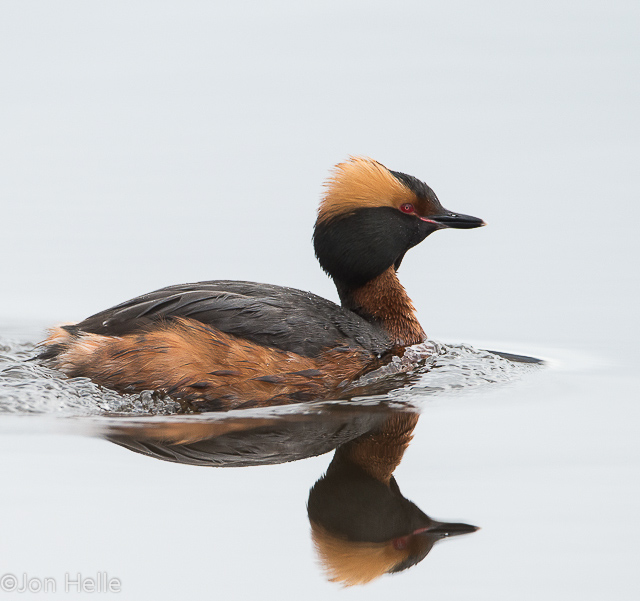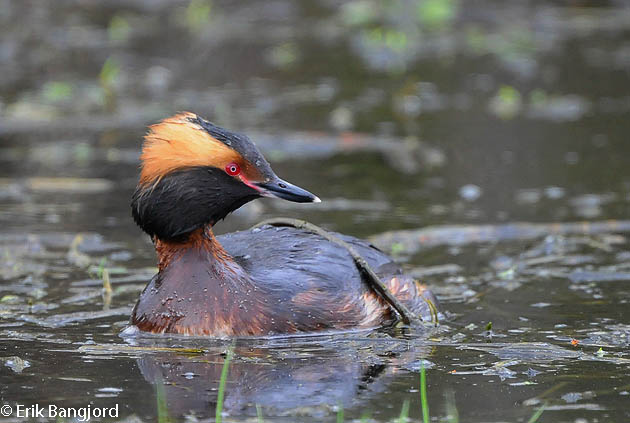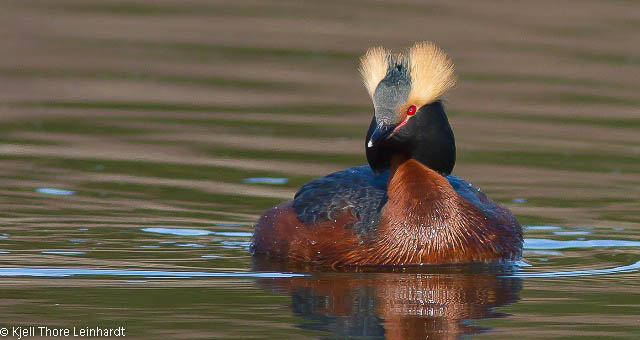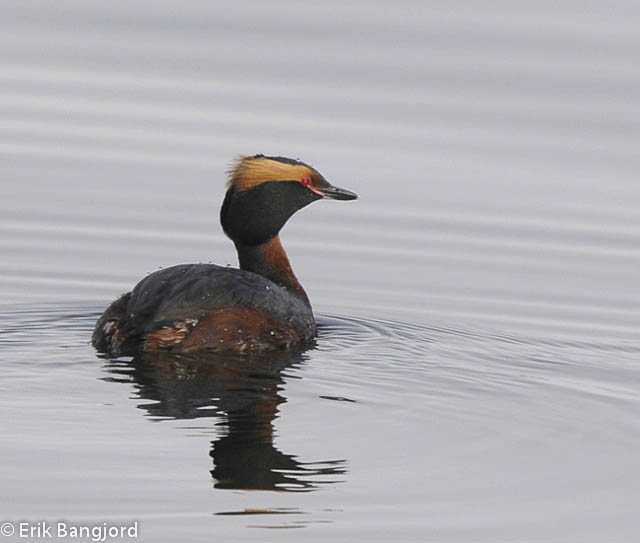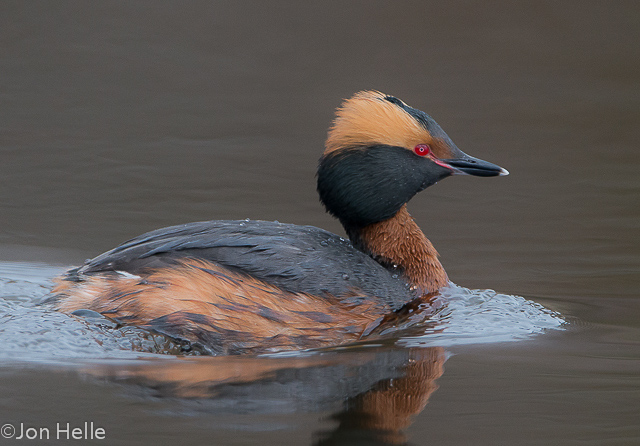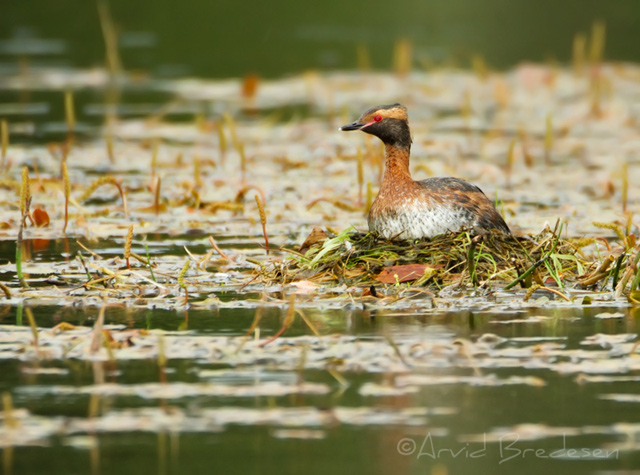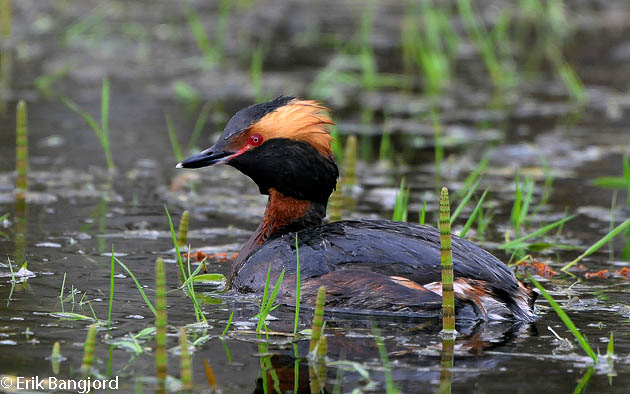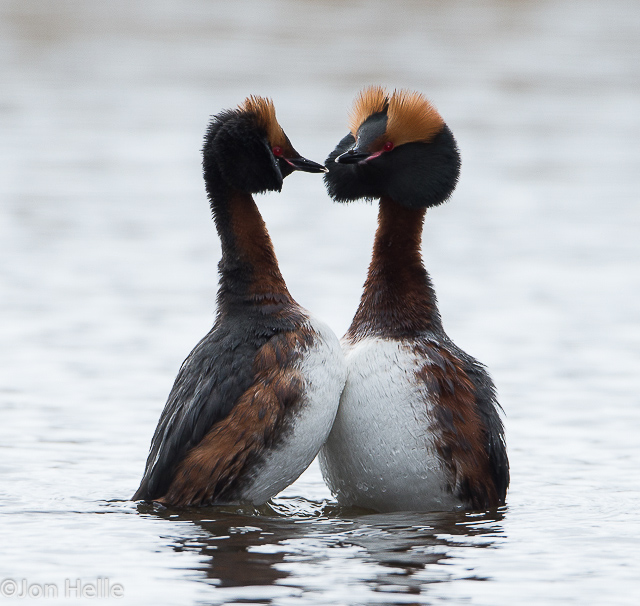Stone Curlew (Burhinus oedicnemus)
Slavonian Grebe (Podiceps auritus)
Unmistakeable in all of WP except for Egypt where Senegal Thick-knee occurs. Differs from said species by more yellow on bill and only narrow white band on coverts framed in black (less prominent in immatures). Mostly nocturnal and easily overlooked at daytime when resting. Runs for cover with hunched posture if disturbed. Easily identified in flight by dark wing with white window, long tail and trailing toes. Betrays it's presence at dusk when groups of birds often starts calling and moving about.
Sound:Very vocal at twilight with various wailing, curlew-like calls, undulating in crescendoes, often in joined choruses. Most typical call a cyclic "turrru-leeek", with rolling "r" and second part higher pitched (at end of sound file).
Two types of call:
Distribution:
Xeno-canto: map
Ecology:Birdlife ecology
Links:
Observation.org Latest observations
Image search Flickr NB! May give other species
CCSmall and compact grebe. May be confused with Red-necked Grebe or Black-necked Grebe. In all plumages; short bill and flat crown. Thicker neck than Black-necked Grebe and lacks steep forehead. Dark bill with pale tip, often surprisingly visible. Summer; chestnut neck, black head and golden crests. Sexes alike, but male slightly brighter coloured. Winter; black upperparts and white underparts (differs from Little Grebe). Pure white cheeks in adults (grey in Red-necked Grebe). Juveniles may show faintly streaked cheeks, but still giving a white impression.
Sound:Varied. Vibrating, wailing, dry and cackling sequences. A mewing, falling and far-reaching "kiaa" and various rattling sounds.
Display:
Distribution:
Wikipedia: map (se also Xeno-canto below)
Ecology:Birdlife ecology
Links:
Observation.org Latest observations
Image search Flickr NB! May give other species
CCSounds:Recorded by Patrick Åberg,http://www.xeno-canto.org ,CC license

 English
English Albanian
Albanian
 Armenian
Armenian
 Bulgarian
Bulgarian
 Catalan
Catalan
 Croatian
Croatian
 Czech
Czech
 Danish
Danish
 Dutch
Dutch
 Finnish
Finnish
 French
French
 Georgian
Georgian
 German
German
 Greek
Greek
 Hungarian
Hungarian
 Italian
Italian
 Latvian
Latvian
 Lithuanian
Lithuanian
 Macedonian
Macedonian
 Norwegian
Norwegian
 Polish
Polish
 Portuguese
Portuguese
 Romanian
Romanian
 Russian
Russian
 Sami : Lule sami
Sami : Lule sami
 Sami : North sami
Sami : North sami
 Sami : South sami
Sami : South sami
 Scientific names
Scientific names
 Serbian
Serbian
 Spanish
Spanish
 Swedish
Swedish
 Ukrainian
Ukrainian

